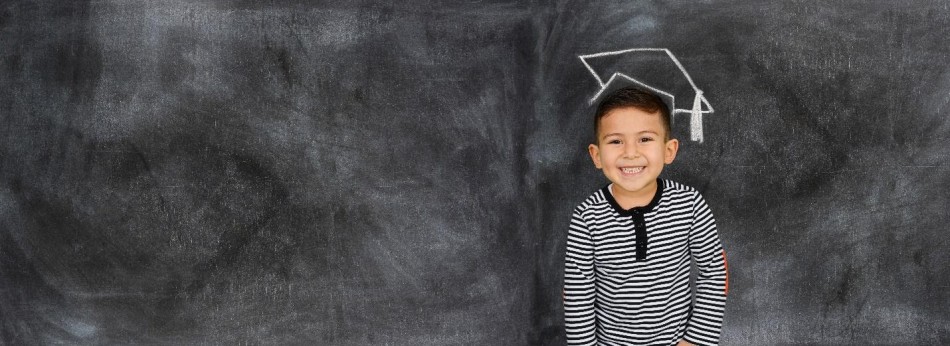Help Your Child Thrive in Kindergarten

Many parents have a child starting kindergarten this 2021-2022 school year. Congratulations!
Kindergarten is a huge milestone, and although the source of a little anxiety for parents, these children benefit from the many positive school experiences within their classroom and from their teachers and fellow classmates.
Last year, most families were confronted with a very untraditional start to school life, with their kindergarteners working hard to learn remotely from home and parents juggling the unfamiliar role of serving as an at-home "educator" working alongside teachers.
More good news: the end of summer provides a great opportunity to help ensure children are set up not only to succeed, but to truly thrive in their new kindergarten environment.
How Do You Know Your Child is Prepared?
Parents, naturally, want to feel they are prepared and have probably heard the term "kindergarten readiness," but what does kindergarten readiness actually mean?
One common misunderstanding to quickly dispel: kindergarten readiness is not only about academic knowledge. It also includes other important areas of learning and development, such as basic physical skills (both fine motor and gross motor skills) and social-emotional development. Parents should also be relieved to know that it is 100% expected that the children entering the same kindergarten class will arrive with a range of academic, physical, and social-emotional abilities and still be able to learn, grow, and thrive in their new setting.
Here are a few specific expectations to keep in mind about kindergarten readiness:
-
Students should be able to socialize with other students.
-
Students should be able to ask questions and use the bathroom on their own.
-
Students entering kindergarten are not expected to know how to read, but, ideally, they should understand letter sounds and how to form them into words.
Now that parents know what preparedness looks like, it is important to know how they can help support the education their children will receive in the classroom.
The ABCs: What Kindergarteners Should Know
Kids who enter kindergarten should ideally know what a letter is when they see it, understand the difference between a lowercase and uppercase letter, and be able to recite the alphabet in order. An easy (and fun!) way to familiarize your child with the ABCs is to regularly sing the alphabet and review all the letters together. In addition to alphabet songs, books are a great resource for parents to help make learning the alphabet fun.
The last aspect of the alphabet to conquer is the ability to sound out what a letter represents. This is done most commonly by equating a letter with an animal. A is for alligator; B is for bison, and so on. If kids have a special interest in another area-for example, food-parents can tailor alphabet learning towards that. And reading any type of book with a child as often as possible will help ready them for learning the alphabet and then beginning to read. Again, choose book subjects and styles that the child is interested in; the more excited a child is to learn, the more effective the learning will be.
Numbers: What Kindergarteners Should Know
Similar to the alphabet-don't stress about how much "math" a child knows. Children entering kindergarten just need a basic understanding of what numbers are and what they represent.
Parents can start simply by counting with their child - counting fingers and toes, toys, blocks, socks, spoons, blueberries, and any other items around your house. Birthdays are a great time to establish a love of numbers, as well. Discuss the number that represents their age and how old they will be a year from their birthday. Finding simple and seamless ways to incorporate counting and numbers into a child's daily routines will help those concepts set in.
How ABCmouse Helps Students Thrive in Kindergarten
Thankfully, parents don't have to do it all themselves! These days, there are lots of options when it comes to digital learning programs and apps that can give extra support as they help their kids excel in kindergarten.
The #1 early learning program that parents turn to is the award-winning and comprehensive ABCmouse. ABCmouse has helped millions of children develop a strong foundation for academic success with a fun, standards-based Learning Path designed by master educators who understand all the common benchmarks that kindergarten teachers are looking for. The comprehensive ABCmouse curriculum covers math, science, reading, social studies, art, and music and includes more than 10,000 learning activities to help kindergarteners with their language and literacy, cognitive skills and math, and much more.
The more children are engaged and entertained in their education, the more they will learn. Every time a child completes a new activity or progresses to another level, they will feel a sense of accomplishment that can lead to a lifelong love of learning.
ABCmouse also sparks curiosity by offering engaging video content like Search and Explore, a video series that invites children to embark on adventures with ABC Mouse and his friends to destinations around the world: the Grand Canyon, the Golden Gate Bridge, the Amazon River, the Great Wall of China, and many more.
Using ABCmouse before kindergarten, students are able to enter school with an understanding of the concepts that will be taught in the classroom. Using ABCmouse throughout the kindergarten year can give valuable practice and reinforcement to those who could benefit from extra help. For all children, ABCmouse can unlock curiosity and confidence that help create a lifelong love of learning!
© 2024 ParentHerald.com All rights reserved. Do not reproduce without permission.
* This is a contributed article and this content does not necessarily represent the views of parentherald.com
